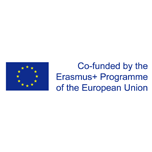Human Right to MOVE.
The 8th MOVE Congress was held in Birmingham, UK, from 4-6 October 2017 and gathered stakeholders in grassroots sport and physical activity from six continents under the theme “the Human Right to MOVE”.
The conference put the spotlight on local and international initiatives that are removing the barriers that typically stop people from being active in the communities: from social, to socio-economic, to urban planning, distance and cost.
Five UK partners helped host the MOVE Congress 2017: Birmingham City Council, Sport England, StreetGames, Youth Sport Trust and the Wild Network.
With an opening session that transformed Birmingham Council House’s Banqueting Hall into a 5Rhythms “ISCA Disco”, presentations that got delegates thinking and sharing their views, and a Bhangra and barn dance workshop at the networking dinner – the Congress upheld its tradition as one of the most active conferences in the world.
“I don’t think the city [of Birmingham] has seen an opening of a Congress like this before,” Birmingham City Councillor Ian Ward said in his opening speech after the conga lines and free flowing dances had murmured to an end.
Together, the organisations who took part in this year’s MOVE Congress are enablers of the human right to MOVE. And the transformation from inactive to active communities starts with us – right now.
The MOVE Congress 2017 focused on the following themes:
- MOVEment Spaces: Reframing Urban Spaces for Physical Activity
- ReMOVING Barriers – Getting it Right: Engaging Hard-to-Reach Groups in Physical Activity
- Me Time, Wellbeing Time, WILD Time! Bringing Physical Activity Back to Nature
- Active School Communities: Creating an Active Culture for Every Child
 The MOVE Congress 2017 was supported by the European Commission through the Erasmus+ Sport Collaborative Partnership projects ActiveVoice, MOVEment Spaces and Active School Communities.
The MOVE Congress 2017 was supported by the European Commission through the Erasmus+ Sport Collaborative Partnership projects ActiveVoice, MOVEment Spaces and Active School Communities.
Programme Committee: Saska Benedicic Tomat (ISCA, lead), Mogens Kirkeby (ISCA), Karen Creavin (Birmingham City Council).
MOVE Congress 2017
Human Right to MOVE. The 8th MOVE Congress was held in Birmingham, UK, from 4-6 October 2017 and gathered stakeholders in grassroots sport and physical activity from six continents under the theme “the Human Right to MOVE”. The conference put the spotlight on local and international initiatives that are removing the barriers that typically stop people from being active in the communities: from social, to socio-economic, to urban planning, distance and cost. Five UK partners helped host the MOVE Congress 2017: Birmingham City
MOVING also means advocating for our cause
At the MOVE Congress 2017 closing session on Friday 6 October, ISCA Secretary General Jacob Schouenborg led an open panel discussion together with ISCA North America Chair Jayne Greenberg, Pauline Harper from EPODE International and Rose-Marie Repond from EUPEA on the WHO’s recent draft of a Global Action Plan for Physical Activity. So along with making physical moves to encourage others to get active, it is also important for the delegates to take political action and make strategic moves to get
Physical activity promoters from six continents made their MOVE at the MOVE Congress 2017
The MOVE Congress 2017 in Birmingham, UK, from 4-6 October gathered stakeholders in grassroots sport and physical activity from six continents and countries as far and wide as New Zealand, Costa Rica, the US and Brazil. From transforming the Birmingham Council House’s Banqueting Hall into a 5Rhythms “ISCA Disco” at the opening session, to presentations that got the participants thinking and sharing their views, to more dancing with a Bhangra and barn dance workshop at the networking dinner – the 8th
“What a responsibility we have!”
The MOVE Congress 2017 puts the spotlight on us as enablers of the human right to MOVE. The barriers that get in the way of the average citizen exercising their human right to move are plentiful, according to the presenters at this year’s MOVE Congress. Anything from money to gender-stereotyped activities, to lack of safety, to perception, to litter and lazy dog owners stops people from using their environment as a space to be active. “It’s easier to find the millions to
Video highlights from the opening of the MOVE Congress 2017
The MOVE Congress 2017 started with not one, but two dances! The Birmingham Council House was a grand backdrop to the unique blend of spontaneous 5Rhythms moves, opening speeches and an Indian bhangra dance finale. For a glimpse of the action, watch the video below. Missed the conference? Then stay tuned for the MOVE Congress 2019 - it may visit your city
MOVE Congress 2017 starts with a Call to MOVE
It’s our human right to move – so what’s stopping us? MOVE Congress 2017 facilitator Sean Blair from ProMeet greeted this year’s delegates when they arrived with a Call to MOVE. And before the opening speeches even began, Birmingham Council House’s banqueting hall had transformed into a dance floor led by Neil Pinnock from 5 Rhythms and six of his co-dancers. “I don’t think the city has seen an opening of a Congress like this”, Birmingham Councillor Ian Ward said
Birmingham, UK in focus – what to expect?
Frequent Flyer or just a Novice Traveller, we have prepared a list of things to check before coming to Birmingham this October. As UK is the land of many perks, then it might be good to check this before closing the zipper of your suitcase – are you ready and prepared? ✈︎ Adapt the power adapters ✈︎ UK is a country where traffic drives on the left Note this within a roundabout where the circulation is clockwise! ✈︎ Change your currency to pounds Even though
Equity vs Equality – remove the barriers to reach the “hard-to-reach”
In general, we have a good understanding of who the hard-to-reach groups are and why it is important to get them engaged in the community. Although everyone has the fundamental right to move, many social groups are being left behind when it comes to access and awareness of affordable activities that can enhance their wellbeing. As a result, their physical activity levels tend to be much lower and it can be difficult to motivate them to be more active. What to do
If not now, then when? Don’t miss the MOVE Congress registration deadline!
Many sport-for-all promoters have already marked in their calendars three important dates – 4-6 October when MOVE Congress 2017 takes place. If you still haven’t reserved your ticket then the right moment is now – registration closes on Sunday 24 September. The full pass (250 euros) will guarantee you a ticket to one of the most dynamic conferences in the field. We will not just do the talking but stay active throughout the three days. The participants have a chance to
Check your fitness level during the MOVE Congress 2017
As one of the most active conferences in the world, the MOVE Congress always practices what it preaches. This year, the coffee breaks won’t be an exception. They will be an extra opportunity to get active, with the European Fitness Badge Active Corner. Participants who visit the European Fitness Badge Active Corner will get a taste of some of the European Fitness Badge test's activities and learn first-hand about this new, interactive tool. Developed by 7 European countries, the European Fitness Badge


